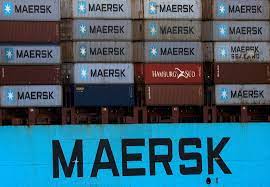
Maersk entered into a new long-term bio-methanol offtake agreement while highlighting that China continues to play a pioneering role in the development of alternative fuels. With this latest agreement, Maersk reports its combined methanol offtake agreements now meet more than 50 percent of the dual-fuel methanol fleet demand in 2027.
LONGi Green Energy Technology Co., a developer of photovoltaic and solar power projects and an electrolyzer manufacturer, will supply the bio-methanol produced at a facility in Xu Chang, Central China. The bio-methanol will be produced from residues of straw and fruit tree cuttings, with the first volumes expected in 2026. Full production is expected at the end of the decade.
Maersk notes that this agreement has evolved out of its growing global alternative fuels portfolio. The company which has previously said the supplies of the alternative fuel were in short supply notes that several of its other methanol projects “are currently in advanced stages of maturity,” including current efforts with several promising projects in the U.S. The company states that bio- and e-methanol continue to be the most promising alternative shipping fuels to scale up in this decade.
Developing a steady supply remains a key part of Maersk’s decarbonization strategy. The company notes that it now has seven of its dual-fuel methanol vessels, including six of the 16,000 TEU vessels in service. The company has orders for a total of 25 dual-fuel methanol vessels with the deliveries underway while it also has underway the conversion of its first in-service vessel to operate as dual-fuel methanol.
While the company continues to espouse the virtues of methanol, Maersk was seen as wavering on its strategy as part of its current fleet renewal program. In August, Maersk reported it had elected a mix of methanol and liquified gas dual-fuel propulsion systems saying in the short term, Maersk also foresees a multifuel future for the industry which includes liquified bio-methane. Once the fleet renewal is implemented, Maesk says around a quarter of its fleet will be equipped with dual-fuel engines.
“Global shipping’s main net-zero challenge is the price gap between fossil fuels and the alternatives with lower greenhouse gas emissions. We continue to strongly urge the International Maritime Organization’s member states to level the playing field by adopting a global green fuel standard and an ambitious pricing mechanism which the industry urgently needs,” the company said announcing the new offtake agreement.
Maersk says it believes that the future of global logistics will see several pathways to net-zero, with today’s agreement underscoring the continued momentum for methanol projects.
China continues to play a pioneering role, and it is encouraging to also see strong market developments in other geographies as well. One example is the US where we are engaging closely with several promising projects.















